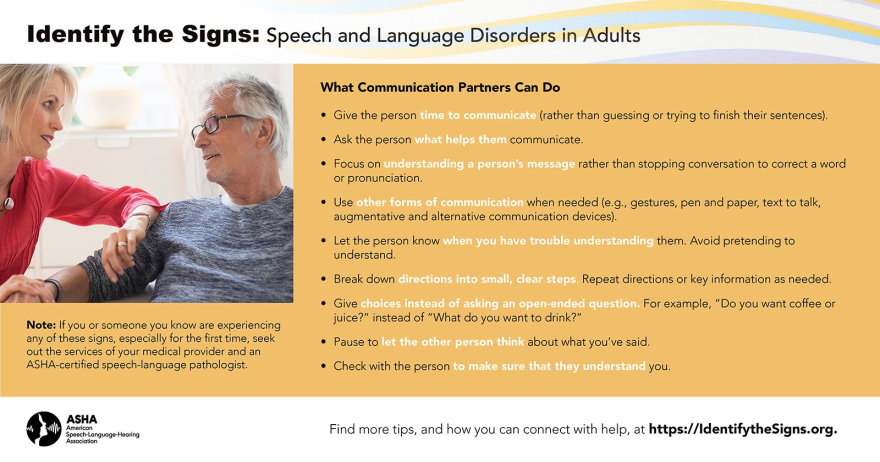
The speech language pathologist, commonly called speech therapist, has an important role in managing the symptoms of ALS. Creating thoughts, words and phrases, no matter if in verbal or written forms, is a complex process involving regions of the brain and a complex network of nerves and muscles throughout the body.
Overall, more than 100 muscles are used to create speech! Tiny muscles in the tongue, lips, jaw, face, neck and chest must all coordinate in specific timing to form spoken sounds, words, and phrases. Since speech is coordinated on exhaled air from the lungs, the respiratory system is also important to communication. These same muscles coordinate in a very different way to chew and swallow food and liquids. The goal of speech therapy is to improve and/or maintain communication, as well as eating/swallowing skills for activities of daily living.
Strategies to improve verbal speech can be targeted early in the diagnosis or when the nerves and muscles involved in speaking, chewing, and swallowing become affected. Alternatively, through the use of multiple communication strategies which may include technology, there are many methods to use tools to improve communication. Tools such as pen and paper, letter boards and communication apps on a mobile device are just a few alternative communication strategies.
Speech therapists may need to work with occupational therapists to determine alternate ways to input text if hand function becomes difficult. Likewise, when chewing and swallowing become affected, a speech therapist may work with a nutritionist to determine dietary changes or certain food types to maintain optimal intake of calories, protein and hydration to ensure that all body systems work well. Without the proper intake of nutrition and water for the body, all body systems fail to work properly. For example, without proper hydration, body temperature rises and the body cannot regulate heat which may result in increased fatigue.
If you or a loved one have noticed changes in speaking, chewing or swallowing, it is important to talk to your doctor about a referral to a speech therapist. There are strategies and tools to preserve communication independence and promote improved communication.
Some motor neuron diseases also cause changes in thinking known as frontal temporal dementia (FTD). FTD is a condition that may be described with qualities such as extremely stubborn or rigid thinking, difficulty understanding the diagnosis and subsequent changes, inability to make safe decisions, lack of empathy toward others, among other descriptions and may also include loss of spelling and ability to put words in order to create thoughts or sentences. Speech therapists can also help if you or your loved one is experiencing these challenges.
Lisa Bruening, MS, CCC-SLP
Director of Care Services
The ALS Association serving Northern Ohio
